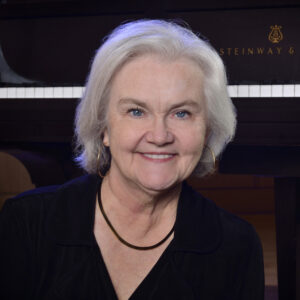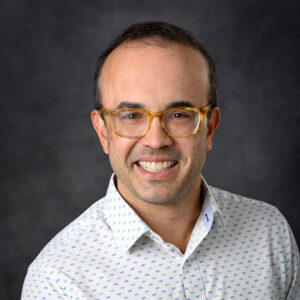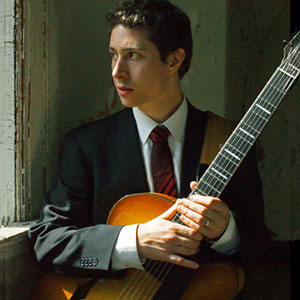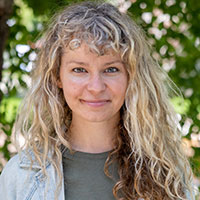- Performances & Events
- Student Resources
- Our Faculty
- Giving & Alumni
-
- All Areas
- Brass
- Composition
- Conducting
- Jazz Studies
- Keyboard
- Music Education
- Music Theory
- Musicology / Ethnomusicology
- Percussion
- Strings
- Vocal Arts
- Woodwinds
- Chamber Music
- Summer Programs
EnsemblesA wide variety of performance opportunities await our students each year, with orchestras, bands, choirs and opera, jazz nonets and combos, small ensembles, and more.
-
- Running Start
- Health, Safety, & Wellness
- Diversity and Inclusion in Music
- Entrepreneurial Musical Artist in Residence
- Jazz Artist in Residence
- Gigline
- MSU Frequency
- Carillon
- Celebrating the Spectrum
- Education Abroad
Programs & InitiativesA variety of programs and initiatives operate continuously or annually to enhance learning experiences and help students prepare for their future in music.
- News
- Community Music Schools
-
About
The MSU College of Music supports and challenges students, values innovation and creativity, and helps every community member achieve professional excellence.
- Staff/Contact





 Patrick Johnson is assistant professor of music theory at the MSU College of Music. He utilizes his dual expertise as a concert pianist and a music theorist to engage his students artistically and intellectually, striving to enrich students’ aural and expressive understanding of music while helping them to analyze and to think critically about it. He is the recipient of MSU’s Excellence-in-Teaching Citation (2013), awarded to six teaching assistants university-wide and the highest honor for instructors of that rank. As a pianist, Johnson performs regularly throughout the Midwest as a solo, chamber, and orchestral pianist. He received a Bachelor of Musical Arts in piano performance, with high honors, from the University of Michigan and holds a Master of Music degree in music theory and both a Master of Music and a Doctor of Musical Arts degree in piano performance from Michigan State University.
Patrick Johnson is assistant professor of music theory at the MSU College of Music. He utilizes his dual expertise as a concert pianist and a music theorist to engage his students artistically and intellectually, striving to enrich students’ aural and expressive understanding of music while helping them to analyze and to think critically about it. He is the recipient of MSU’s Excellence-in-Teaching Citation (2013), awarded to six teaching assistants university-wide and the highest honor for instructors of that rank. As a pianist, Johnson performs regularly throughout the Midwest as a solo, chamber, and orchestral pianist. He received a Bachelor of Musical Arts in piano performance, with high honors, from the University of Michigan and holds a Master of Music degree in music theory and both a Master of Music and a Doctor of Musical Arts degree in piano performance from Michigan State University. Christian
Christian  Lauren Snyder is a certified yoga teacher, health coach, and proud Michigan State University alumna, holding a B.A. in Elementary Education (2014) and an M.A. in Applied Behavior Analysis (2019). She currently serves as a behavior consultant (BCBA) for Clinton County schools and supports educator well-being as a wellness coach with Opportunity Thrive. Lauren is also the founder of The Integrative Behaviorist LLC, where she offers community-centered support that bridges behavior science and holistic wellness. Lauren completed her 200-hour yoga teacher training in 2025 and has maintained a dedicated yoga practice since 2022. She is especially drawn to restorative styles like yin yoga, yoga nidra, and slow burn, and teaches slower-paced, intentional flows rooted in traditional Sun A and Sun B sequences. Her classes are designed to be accessible, supportive, and nourishing—creating space for individuals to reconnect with their bodies, breath, and inner calm
Lauren Snyder is a certified yoga teacher, health coach, and proud Michigan State University alumna, holding a B.A. in Elementary Education (2014) and an M.A. in Applied Behavior Analysis (2019). She currently serves as a behavior consultant (BCBA) for Clinton County schools and supports educator well-being as a wellness coach with Opportunity Thrive. Lauren is also the founder of The Integrative Behaviorist LLC, where she offers community-centered support that bridges behavior science and holistic wellness. Lauren completed her 200-hour yoga teacher training in 2025 and has maintained a dedicated yoga practice since 2022. She is especially drawn to restorative styles like yin yoga, yoga nidra, and slow burn, and teaches slower-paced, intentional flows rooted in traditional Sun A and Sun B sequences. Her classes are designed to be accessible, supportive, and nourishing—creating space for individuals to reconnect with their bodies, breath, and inner calm Hae Won Jang is a versatile musician and educator, serving as organ instructor at Michigan State University and the Interlochen Center for the Arts, including its summer camp. She also serves as Organist and Associate Music Director at St. Thomas Aquinas Catholic Church in East Lansing. In addition to her church and academic responsibilities, Jang maintains an active interest in collaborative music-making with a wide range of artists and musicians, and was recently featured in the Exploring American Musical Roots project with the MSU Chorale, conducted by Dr. David Rayl and sponsored by the Budds Center for American Music Studies. Jang is also involved in an upcoming recording project. She holds a Master of Music in Sacred Music (Organ) and Harpsichord Performance from the University of Michigan, as well as a Doctor of Musical Arts and Master’s degrees in Piano Performance and Choral Conducting from Michigan State University.
Hae Won Jang is a versatile musician and educator, serving as organ instructor at Michigan State University and the Interlochen Center for the Arts, including its summer camp. She also serves as Organist and Associate Music Director at St. Thomas Aquinas Catholic Church in East Lansing. In addition to her church and academic responsibilities, Jang maintains an active interest in collaborative music-making with a wide range of artists and musicians, and was recently featured in the Exploring American Musical Roots project with the MSU Chorale, conducted by Dr. David Rayl and sponsored by the Budds Center for American Music Studies. Jang is also involved in an upcoming recording project. She holds a Master of Music in Sacred Music (Organ) and Harpsichord Performance from the University of Michigan, as well as a Doctor of Musical Arts and Master’s degrees in Piano Performance and Choral Conducting from Michigan State University. Lauren Julius Harris is a Chicago native and was educated in its public schools. His belief that music matters, the topic of his presentation for this program, grows out of a love for music first nurtured by his parents, his best teachers. Thanks to them, he had the good fortune to begin learning about and enjoying music and other art forms while still a child, starting with piano lessons on his mother’s Baldwin grand. These were precious gifts and enriched his life. In 1965, he joined the faculty in the Department of Psychology at Michigan State University, where he’s been ever since. A member of the program in Cognitive Psychology and Cognitive Neuroscience, Harris teaches courses in developmental psychology, history of psychology, and neuropsychology. His research ranges from laboratory studies of cognition, emotion, and laterality of function, to studies in the history of psychology and neuroscience. Throughout, he’s been fortunate to have outstanding colleagues and students. He has served on the editorial boards of Developmental Psychology, the Journal of the History of the Neurosciences, Developmental Neuropsychology, Laterality, and Brain and Cognition.
Lauren Julius Harris is a Chicago native and was educated in its public schools. His belief that music matters, the topic of his presentation for this program, grows out of a love for music first nurtured by his parents, his best teachers. Thanks to them, he had the good fortune to begin learning about and enjoying music and other art forms while still a child, starting with piano lessons on his mother’s Baldwin grand. These were precious gifts and enriched his life. In 1965, he joined the faculty in the Department of Psychology at Michigan State University, where he’s been ever since. A member of the program in Cognitive Psychology and Cognitive Neuroscience, Harris teaches courses in developmental psychology, history of psychology, and neuropsychology. His research ranges from laboratory studies of cognition, emotion, and laterality of function, to studies in the history of psychology and neuroscience. Throughout, he’s been fortunate to have outstanding colleagues and students. He has served on the editorial boards of Developmental Psychology, the Journal of the History of the Neurosciences, Developmental Neuropsychology, Laterality, and Brain and Cognition.